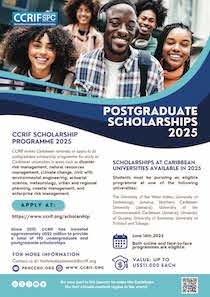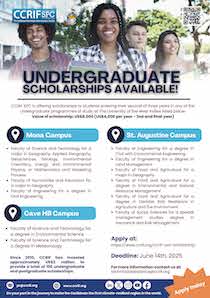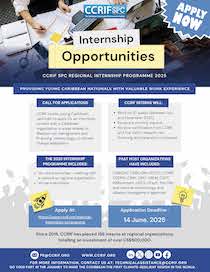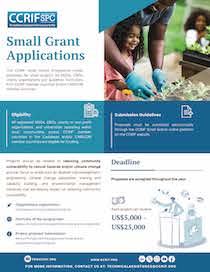CCRIF’s ability to provide parametric insurance coverage has always been underpinned by its parametric insurance models – which have evolved over the years... moving from off the shelf models, to CCRIF customized models and fi nally to models that are fully owned by CCRIF.
From its inception, CCRIF has based its operations on continuous improvement, and this has emerged as one of the core principles underpinning its corporate governance framework.
This document is a “toolkit” designed for NGOs and CBOs to enable them to prepare and submit project proposals to the CCRIF Small Grants Programme. This programme provides grants between US$5,000 and US$25,000 to NGOs CBOs and academic institutions to implement community-based disaster risk reduction projects.
CCRIF SPC fourth publication of technical papers, which highlights academic papers completed by recipients of CCRIF scholarships who have completed degrees in areas related to disaster risk management at The University of the West Indies and other universities in the United Kingdom.
These scholarships are offered within CCRIF’s larger Technical Assistance Programme, which is aimed at building capacity among key organizations as well as individuals and nongovernmental organizations for improved disaster risk management in the Caribbean region.
The project consortium learned many lessons along the way, and the CCRIF team is pleased to have been part of the development of this document that captures 20 key lessons we have learned over Phases I and II. These lessons learned will be key in the implementation of Phase III and would allow the project team to build on the best practices from the previous phases as well as focus on taking corrective action in areas that were not as successful, but for which there is now a more in-depth understanding in this relatively new and innovative area of climate risk insurance.
This document is a “toolkit” designed for NGOs and CBOs to enable them to prepare and submit project proposals to the CCRIF Small Grants Programme. This programme provides grants between US$5,000 and US$25,000 to NGOs CBOs and academic institutions to implement community-based disaster risk reduction projects.
An Example of how Weather-based Sovereign Risk Insurance and Microinsurance can Contribute to Effective Social Protection
This publication highlights CCRIF’s support to its members and the people of the Caribbean for disaster risk management through its Technical Assistance Programme.





